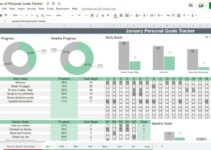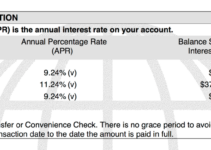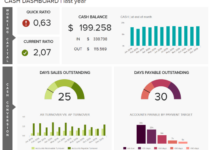Personal Finance Specialist 2024: Evolving Role and Responsibilities in a Changing Landscape. This comprehensive guide delves into the ever-changing landscape of personal finance and its impact on the role of specialists, exploring emerging technologies, essential competencies, educational pathways, career opportunities, professional development, and future trends that will shape the profession in the coming years.
Personal Finance Specialist 2024
The financial landscape is constantly evolving, driven by technological advancements and shifting economic conditions. These changes have a profound impact on the role of personal finance specialists, who must adapt to meet the evolving needs of their clients.
Emerging Technologies and Their Influence
The rise of fintech has revolutionized the way individuals manage their finances. From mobile banking to automated investment platforms, technology is empowering clients with greater control and flexibility over their financial lives. As a result, personal finance specialists must become proficient in these tools to effectively guide their clients through the increasingly complex financial landscape.
New Responsibilities and Skills
In addition to traditional financial planning services, personal finance specialists are now expected to provide holistic wealth management advice that encompasses areas such as tax planning, estate planning, and retirement planning. They must also possess a deep understanding of behavioral finance to help clients overcome cognitive biases and make sound financial decisions.
- Financial Planning:Develop and implement personalized financial plans that address clients’ short- and long-term goals.
- Investment Management:Manage clients’ investment portfolios, balancing risk and return to meet their unique needs.
- Tax Planning:Minimize clients’ tax liability through strategic tax-saving strategies.
- Estate Planning:Create estate plans that ensure the orderly transfer of assets and protect clients’ wishes after their death.
- Retirement Planning:Help clients plan for a secure and comfortable retirement, considering factors such as income needs, investment strategies, and healthcare costs.
Key Competencies and Skills for Personal Finance Specialists
Personal finance specialists need a unique blend of technical and soft skills to effectively guide clients in managing their financial well-being. These professionals require a strong understanding of financial principles, investment strategies, and tax laws, along with exceptional communication and interpersonal abilities.
Technical Skills, Personal Finance Specialist 2024
- Financial Planning:Developing and implementing personalized financial plans that address clients’ financial goals, risk tolerance, and time horizons.
- Investment Analysis:Evaluating and recommending investment options, including stocks, bonds, mutual funds, and alternative investments.
- Tax Planning:Understanding and applying tax laws to minimize clients’ tax liabilities and optimize their financial outcomes.
li> Estate Planning:Assisting clients in developing estate plans that ensure their assets are distributed according to their wishes and minimize estate taxes.
Soft Skills
- Communication:Effectively conveying complex financial concepts to clients in a clear and understandable manner.
- Interpersonal Skills:Building strong relationships with clients based on trust, empathy, and active listening.
- Problem-Solving:Analyzing clients’ financial situations and developing creative solutions to address their unique challenges.
- Attention to Detail:Meticulously reviewing financial documents and ensuring accuracy in all financial calculations.
Certifications
- CFP (Certified Financial Planner):The most widely recognized certification for personal finance specialists, demonstrating a comprehensive understanding of financial planning.
- CFA (Chartered Financial Analyst):A prestigious certification for investment professionals, indicating expertise in investment analysis and portfolio management.
- ChFC (Chartered Financial Consultant):A specialized certification for financial professionals who provide comprehensive financial planning services.
Experience
- Financial Planning:Experience in developing and implementing financial plans for individuals and families.
- Investment Management:Experience in managing investment portfolios and providing investment advice.
- Tax Planning:Experience in advising clients on tax-related matters and developing tax-efficient strategies.
- Estate Planning:Experience in assisting clients with estate planning and estate tax minimization.
Educational Pathways to Becoming a Personal Finance Specialist

Becoming a Personal Finance Specialist requires education and training in financial principles and practices. Aspiring specialists can pursue various educational paths to acquire the necessary knowledge and skills. Each path offers unique benefits and drawbacks, and choosing the right one depends on individual circumstances and career goals.
College Degrees
College degrees provide a comprehensive foundation in personal finance and related fields. Bachelor’s degrees in finance, accounting, or economics typically include coursework in financial planning, investments, taxation, and financial markets. Graduates with college degrees often have a strong understanding of financial principles and analytical skills, which are essential for success in the field.
However, college degrees can be time-consuming and expensive.
Certifications
Certifications are professional credentials that demonstrate a specialist’s knowledge and skills in personal finance. Several reputable organizations, such as the Certified Financial Planner Board of Standards (CFP Board) and the National Association of Personal Financial Advisors (NAPFA), offer certification programs.
Certifications require candidates to pass exams and meet continuing education requirements. They provide a focused and specialized education in personal finance and can enhance credibility and career prospects. However, certifications may not be as comprehensive as college degrees and can require ongoing expenses for maintenance.
Online Courses
Online courses offer flexibility and accessibility for aspiring specialists. Many universities, colleges, and private institutions provide online programs in personal finance. These courses cover a range of topics, from financial planning to investment strategies. Online courses can be a cost-effective option and allow individuals to learn at their own pace.
However, they may lack the structure and support of traditional classroom settings.
Career Opportunities and Salary Expectations
Personal finance specialists can pursue diverse career paths in various industries. They may work in:
- Financial institutions, such as banks, credit unions, and investment firms
- Non-profit organizations dedicated to financial education and counseling
- Government agencies responsible for consumer protection and financial regulation
- Educational institutions as professors or researchers in personal finance
- Private wealth management firms
Within these industries, personal finance specialists can hold positions such as:
- Financial advisor
- Financial planner
- Credit counselor
- Debt management specialist
- Retirement planning specialist
- Insurance advisor
Salary Expectations
Salary expectations for personal finance specialists vary based on experience, specialization, and geographic location. According to the U.S. Bureau of Labor Statistics, the median annual salary for personal financial advisors was $94,180 in May 2022. The lowest 10 percent earned less than $49,520, and the highest 10 percent earned more than $208,000.
Specialization can also impact salary expectations. For example, certified financial planners (CFPs) typically earn higher salaries than non-CFPs. According to the CFP Board, the median annual income for CFPs in 2022 was $126,120.
Geographic location can also play a role in salary expectations. Personal finance specialists working in large metropolitan areas, such as New York City or San Francisco, typically earn higher salaries than those working in smaller cities or rural areas.
Professional Development and Networking for Personal Finance Specialists
Continuous professional development and networking are crucial for Personal Finance Specialists to stay abreast of industry trends, enhance their skills, and advance their careers. Industry events, conferences, and professional organizations provide valuable opportunities for knowledge sharing, skill enhancement, and relationship building.
Industry Events and Conferences
Attending industry events and conferences allows specialists to connect with peers, learn about emerging trends, and gain insights from experts. Key industry events include the Financial Planning Association’s (FPA) Annual Conference, the National Association of Personal Financial Advisors (NAPFA) Advisor Summit, and the Certified Financial Planner Board of Standards (CFP Board) Annual Conference.
Professional Organizations
Joining professional organizations such as the FPA, NAPFA, and the CFP Board offers numerous benefits. These organizations provide access to educational resources, networking opportunities, and certification programs. Membership also demonstrates a commitment to professional standards and ethics.
Tips for Effective Networking
Effective networking involves building genuine relationships and providing value to others. Attend industry events, actively participate in discussions, and connect with potential mentors. Offer assistance to others, share knowledge, and seek opportunities to collaborate. Follow up after initial meetings, maintain communication, and stay engaged with professional contacts.
Future Trends and Challenges for Personal Finance Specialists: Personal Finance Specialist 2024

The profession of personal finance specialists is constantly evolving, shaped by emerging trends and challenges. To remain competitive and relevant, specialists must stay abreast of these developments and adapt accordingly.
Impact of Artificial Intelligence (AI) and Automation
- AI and automation are transforming the financial services industry, including personal finance.
- Automated tools can assist specialists in tasks such as data analysis, portfolio management, and customer service.
- While AI and automation can enhance efficiency, they may also lead to job displacement.
Changing Consumer Behavior
- Consumers are increasingly seeking personalized financial advice and solutions.
- Digital platforms and mobile apps are providing new channels for consumers to access financial information and services.
- Specialists must adapt to these changing consumer preferences to remain relevant.
Recommendations for Adaptation
- Embrace technology and develop proficiency in using AI and automation tools.
- Focus on providing value-added services that cannot be easily automated, such as personalized advice and relationship building.
- Stay updated on industry trends and regulations through continuing education and professional development.
- Network with other professionals and leverage industry resources to stay informed and connected.
Wrap-Up
As the financial landscape continues to evolve, personal finance specialists must embrace ongoing learning, adapt to technological advancements, and stay ahead of the curve to provide invaluable guidance and support to individuals seeking financial well-being.
Detailed FAQs
What is the primary role of a Personal Finance Specialist?
To provide comprehensive financial advice and guidance to individuals, helping them manage their finances, plan for the future, and achieve their financial goals.
What are the key competencies and skills required for Personal Finance Specialists?
Technical skills such as financial planning, investment analysis, and tax planning; soft skills such as communication, problem-solving, and empathy; relevant certifications; and practical experience.
What educational pathways are available to aspiring Personal Finance Specialists?
College degrees in finance or related fields, industry certifications, and online courses provide various options for education and professional development.








